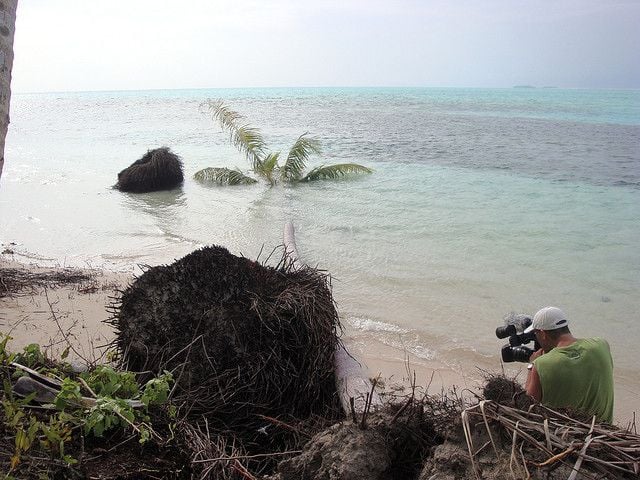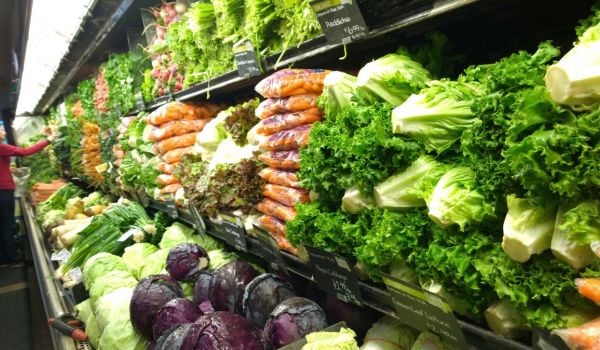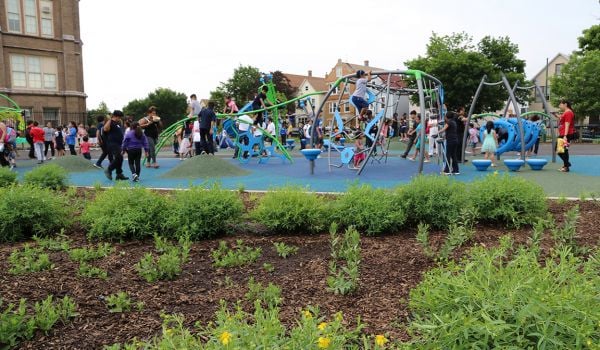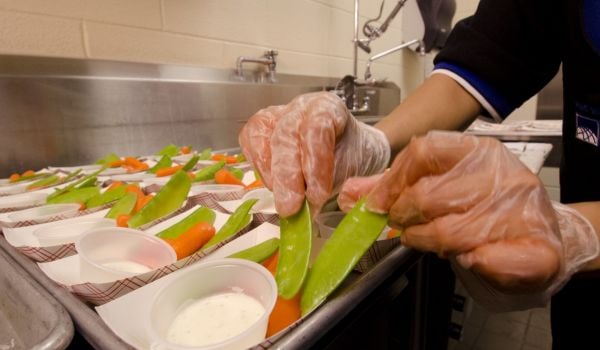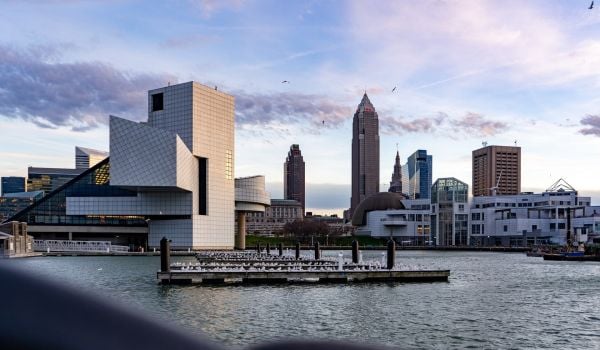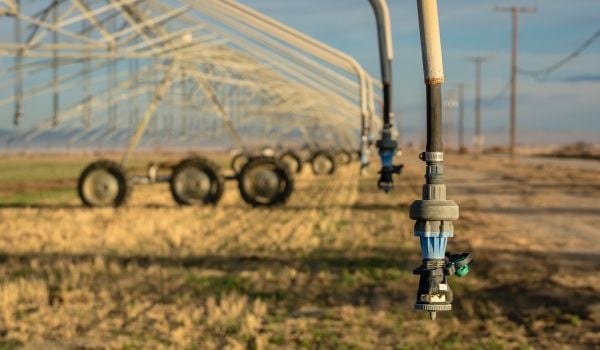In a crowded room of the Austin Convention Center, Michael Green, executive director of the Center for Environmental Health, pulled up a photo of a young boy who no longer feels safe playing outside his home. The boy lives across the street from an oil field. He has nosebleeds every day. His doctor’s solution? That the family should move.
Green was in Austin for SXSW Eco’s third annual sustainability conference, to speak on a panel about fracking and environmental justice. Instead of focusing on corporation mitigation strategies or debating the realities of climate change, he began by telling the heart-wrenching stories of families affected by fracking.
“No one’s allowed to talk because the profits are too big for them to talk,” Green said. “They either leave their community and uproot or worry about kids’ health.”
Stories like this tied together a range of workshops, mentor sessions and start-up competitions at this year’s SXSW Eco, which drew more than 2,800 registrants. Like Green, most panels on topics from behavior, food and health to water, business and energy drew from the power of storytelling to address the impact of environmental changes on global communities.
In a panel on food waste, for instance, Mother Jones contributor Tom Philpott estimated that a third of all food produced in the U.S. goes uneaten. At another point he led conversation with scientists about how to feed more people and fill fewer landfills in world whose population is expected to exceed 9 billion by 2050.
The sheer scope of problems facing cities was a factor in several discussions. One panel, called “How to Future-Proof Cities,” included Next City Executive Editor Ariella Cohen, New York City Director of Resiliency Daniel Zarrilli and The Nature Conservancy’s Laura Huffman. They talked about the growing percentage of the world population that will live in cities — from about half now to 67 percent by 2050, according to the United Nations. Communities need concrete solutions, Huffman said, with large cities like New York, Houston and Los Angeles, to name a few, leading the way.
Other shoutouts were given to Philadelphia, where initiatives under Mayor Michael Nutter’s administration have improved how the city deals with water runoff, and San Antonio, which has grown significantly in the last few years but hasn’t seen water usage levels spike because of strong regulations and smart wastewater treatment systems.
Street artist Shepard Fairey delivered the keynote speech, during which he talked about learning how art could disrupt an environment in a positive way. Fairey is most commonly associated with the Obama “Hope” poster, but for years he has created memorable images tackling environmental problems and commenting on the price of non-conscientious capitalism. He has been arrested 16 times, a number he said pales in comparison to others “trying to infiltrate the system to generate positive change.”
“It’s important to have that mentality to do whatever it takes outside of dominant structures and make a change from within if you can,” Fairey said. “I think the whole planet is out of its comfort zone.”
From the eroding shorelines of the Carterets Islands in Papua New Guinea to the flood- and drought-prone communities in Nigeria, the drastically changing seasons have suggested that Fairey is right. At a panel about the organization Climate Wise Women, Constance Okollet described floods that destroyed her home in Uganda and left children to attend school on empty stomachs. Jacinta Helin described the crisis facing residents of the Carteret Islands, which are the size of small football fields and continue to get smaller. She said the islands will be uninhabitable by 2015.
“The tool of storytelling is one of the strongest tools we have,” Ngozika Onuzo said at the same panel. She described the disappearance of two seasons in her native Nigeria, where temperatures get hotter every month and Lake Chad is shrinking. “We want to evoke emotion so that you can make change even in the smallest way. Especially when we go to places where there is a lot being said but not a lot being done.”
Joshunda Sanders is an Austin-based writer.

